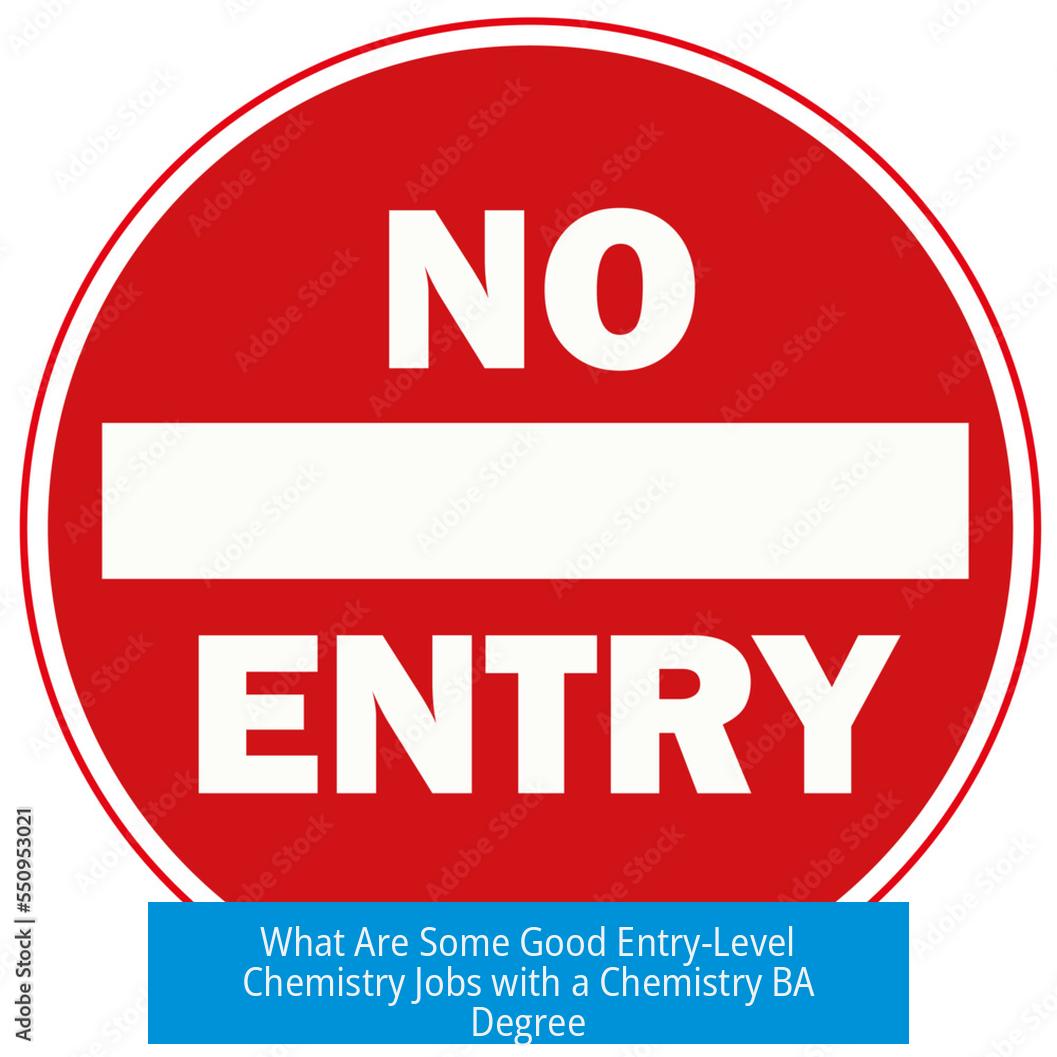What Are Some Good Entry-Level Chemistry Jobs with a Chemistry BA Degree?

Entry-level chemistry jobs for graduates with a Chemistry Bachelor of Arts (BA) degree mainly include laboratory and quality control roles, research assistant positions, technical writing, and industry-specific opportunities in pharmaceuticals, cosmetics, food manufacturing, semiconductors, and industrial chemical plants. Alternative paths like sales and consulting in chemical industries also exist. The BA degree’s value often depends on coursework and attitude rather than the degree title alone.
Laboratory and Quality Control Positions
Many Chemistry BA graduates begin their careers as lab technicians or quality control (QC) analysts in pharmaceutical companies. These roles involve testing, analyzing samples, and ensuring product standards. They offer solid experience and room for advancement.
- Lab Technician or QC Analyst: Common starting roles in pharma, providing hands-on laboratory skills.
- Quality Control Chemist: Larger companies hire QC chemists to oversee testing processes and compliance.
- Laboratory Manager (Industrial Plants): Industrial chemical plants hire new graduates quickly for quality tech positions due to their rarity.
- Medical Technologist: Requires on-the-job training but fits graduates interested in medical lab work.
These positions build foundational skills and expose graduates to real-world scientific procedures.
Industry-Specific Job Opportunities
Chemistry BA degree holders find opportunities in diverse industries beyond pharmaceuticals.
- Pharmaceutical Industry: Positions like QC Chemist or lab tech are common and accessible.
- Cosmetics Industry: BA graduates can enter formulation or quality roles.
- Food and Drink Manufacturing: Quality assurance and testing jobs are available here.
- Semiconductor Industry: Offers better pay and requires knowledge of materials chemistry.
- Industrial Chemical Plants: Employ chemistry grads for quality control and technical roles.
Each sector offers unique challenges and growth paths. Targeting industries based on interests is advisable.
Alternative Career Paths Related to a Chemistry BA Degree
Some graduates explore options related to chemistry without working directly in laboratories.
- Technical Writing: Uses chemistry knowledge to create manuals, reports, and educational content.
- Pharmaceutical Sales and Consulting: Requires learning product and market details, suitable for those with strong communication skills.
- Research Assistant Positions: Post-bachelor’s research roles provide experience and further exposure to scientific investigation.
These roles often value communication, interpersonal skills, and the ability to translate technical knowledge clearly.
Degree and Experience Considerations

The distinction between a BA and BS in chemistry is less critical than the actual coursework and experience gained.
- Employers focus on practical skills, internships, and relevant classes rather than the degree title alone.
- In searches, tailoring the resume to highlight relevant experience and avoiding overqualification helps.
- Positive attitude, coachability, and a willingness to learn outweigh having higher degrees or extensive credentials.
Employers often choose candidates who display enthusiasm and problem-solving ability over those with only high qualifications.
Career Progression Example
An example illustrates career growth starting from an entry-level QC chemist position at a pharmaceutical firm:
- Begin as a QC Chemist, learning practical applications of chemistry.
- Advance to research and development (R&D) chemist roles.
- Take supervisory positions such as laboratory supervisor or QC manager.
- Shift into related sectors like clinical research for further specialization.
This trajectory shows that starting in quality control offers meaningful opportunities for professional advancement.
Summary of Entry-Level Jobs for Chemistry BA Graduates
- Laboratory roles: Lab technician, quality control analyst, QC chemist, medical technologist.
- Industry opportunities: Pharmaceuticals, cosmetics, food and drink, semiconductors, chemical plants.
- Alternative careers: Technical writing, pharmaceutical sales, consulting, research assistant.
- Focus on coursework and internships rather than BA vs. BS degree distinction.
- Attitude and coachability often influence hiring decisions more than paper qualifications.
- Career advancement is possible, especially from quality control starting points.
What entry-level jobs can I get with a Chemistry BA degree in the pharmaceutical industry?
Common roles include lab technician, quality control analyst, and quality control chemist. These positions help you gain real-world experience and can lead to advancement opportunities.
Can a Chemistry BA graduate find work outside pharmaceuticals?
Yes, you might explore cosmetics, food and drink manufacturing, semiconductor firms, and industrial chemical plants. Many industries hire Chem BA grads for quality control and lab tech roles.
Is a Chemistry BA degree less valuable than a BS for entry-level jobs?
The distinction matters less than the classes you took. Employers often focus on your skills and attitude over the BA or BS label.
Are there non-lab jobs suitable for Chemistry BA graduates?
Yes, technical writing, pharmaceutical sales, and consulting are good alternatives. These roles use chemistry knowledge while building communication and business skills.
How important is attitude for entry-level chemistry jobs?
Employers value coachability and a willingness to learn. Often, a recent graduate with the right approach is preferred over someone with a higher degree but less adaptability.
What is a typical career progression starting from an entry-level chemistry job?
Many start in quality control or lab tech roles, then move into R&D, laboratory supervision, or management positions within pharmaceutical or chemical companies.





Leave a Comment